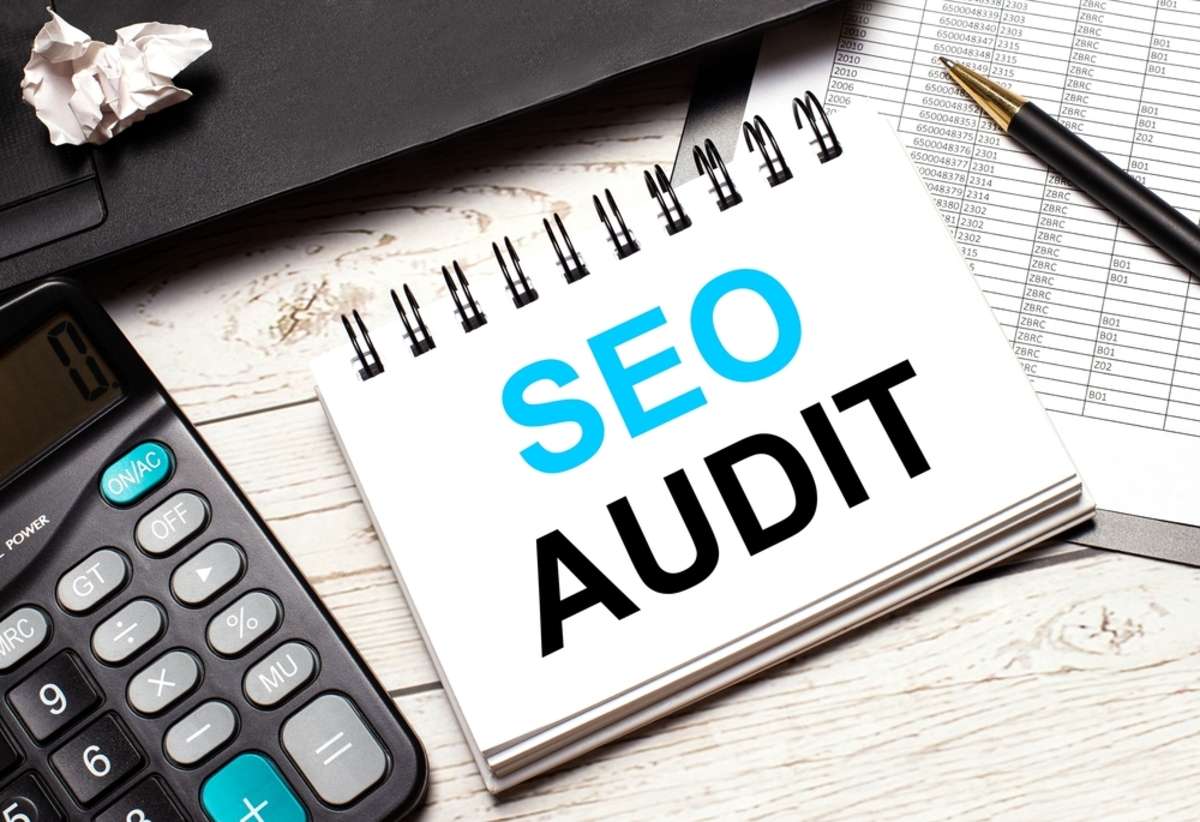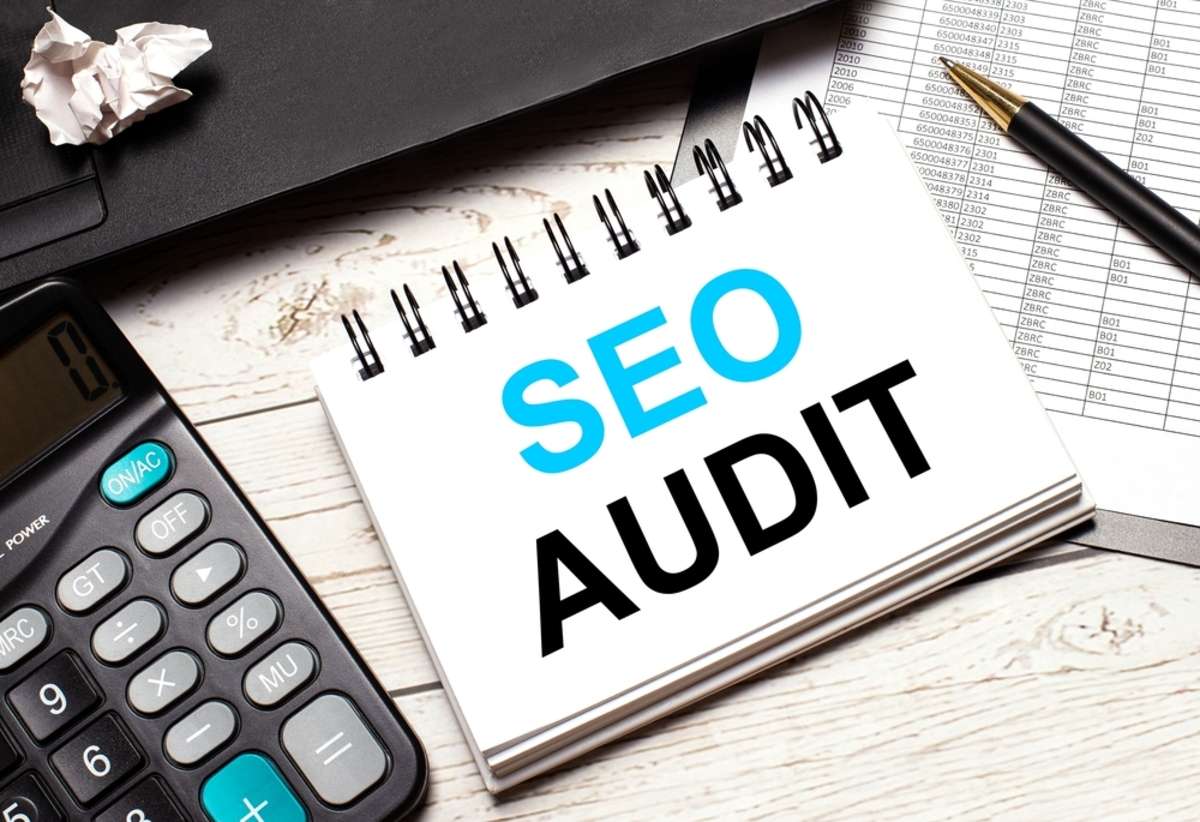
5 Reasons Why You Need a Website SEO Audit
Listen to the article
5 Reasons Why You Need a Website SEO Audit
Published April 25, 2022
Updated June 12, 2023
If you're not conducting regular website SEO audits, you're doing your business a disservice. SEO is constantly changing, and what worked yesterday may not work today.
That's why it's essential to audit your website regularly to take advantage of the latest SEO trends and keyword changes, plus fix any technical issues that are lurking behind the scenes of your website that might keep your site from becoming a successful inbound marketing engine for your property management business.
This blog post will discuss five reasons you should conduct a website SEO audit today!
What is an SEO audit?
An SEO audit looks for areas to improve to increase rankings from search engines. The goal of the audit is to enhance the visibility and organic search traffic of a website by identifying issues that are preventing it from ranking higher in search engine results pages (SERPs).
In a nutshell, this type of audit examines a website to determine its flaws, but we're not talking only about the aesthetics of a website. After all, a website is much more than just a beautiful collection of colors, words, and images. The complete site is considered during an SEO audit, including on the page and behind the scenes.
To help with a successful audit, companies can use an SEO website audit tool. Many tools are free, making it easy for businesses to find the right one for their needs. Popular options include Moz's Link Explorer, Google Search Console, and Screaming Frog's SEO Spider. You could also hire an agency like Geekly Media to perform this website deep-dive for you.
The Top 5 Reasons Why Your Website Needs an SEO Audit
Now that you know what it is, why does your website need it? Here are five reasons why you shouldn't delay (or skip) a routine website audit for SEO.
1. Reveals Technical Issues To Address
A good website SEO audit can help identify a wide range of technical SEO issues. It's like checking the strength of your building's foundation. It may look good from the road, but you could have big problems if it's weak under the surface.

A thorough audit also helps identify technical SEO issues. Technical SEO relates to helping search engines crawl your website better.
During an audit, check and optimize the following aspects of your site.
Website Speed
There are a few reasons why page speed is vital in SEO optimization. Google uses website speed as one of the metrics to determine how high to rank your website in search results. If your website is slow, you will likely rank lower than faster websites.
Plus, a slow website speed affects the user experience. Users are less likely to stay on a slow website and are more likely to leave if your website takes too long to load. Slow load times will increase your bounce rate, another metric that Google uses to determine SEO rankings.
Image Size
Images are an essential part of SEO and can affect your website's technical SEO optimization.
One of Google's most important factors when ranking a website is page load time. If your pages are slow to load, it could be because your images are too large. Reducing image size can help improve your page load time and SEO.
Images that are too large can also cause problems for mobile users. These users can sometimes experience slower connections than desktop users, so large images can cause pages to load slowly or not at all.
Website Redirect Issues
Your site should have as few redirections as possible, and any 404 errors should be avoided.
Website redirects, while relatively inconspicuous, can contribute to a slower user experience. Users may also be put off by 404 errors and abandon your website altogether. Make every effort to remedy these problems to give your users a quality experience.
Site Architecture Issues
Use subfolders to maintain a healthy site structure, and URLs should be short yet informative. A well-optimized site architecture will help human users and search engines navigate your website more easily.
Coding Issues
An SEO audit can also pick up coding issues like duplicate javascript, CSS, or HTML code, which can slow download speeds. If you're not sure how to resolve coding issues, website development experts like Geekly Media can help!
2. Identifies Your Website's On-Page Problems
On-page SEO optimizes a website's content and structure to improve its ranking on search engine results pages. It also makes it as easy as possible for bots to understand what a website is about and index its content accordingly.
An SEO audit should check for errors in the following elements:
-
Meta Titles and Descriptions — Each meta title should be between 35 and 70 characters. Place a keyword or keyword string in each sentence near the beginning. Meta descriptions should be 155 characters or less, including the keyword. You can also include a CTA in the meta description if it makes sense.
-
Headers — Use headers to break up your content and make it easier to read by humans and search engines. You should also use relevant keywords in your headers to help improve your rankings in search engines.
-
Content — The substance of your website is its core. Make sure you're addressing your consumers' queries and then optimizing them for keywords so that your products or services are discovered.
-
Internal Linking — Internal linking helps search engines understand the structure of your website and find new pages Google can rank. It also helps users navigate your website. Within a page's content, add internal links to other pages on your website when relevant to do so.
-
Broken Links — Speaking of links, broken links are bad for SEO! When performing an audit, identify broken links (internal and external) and replace them with better links or remove them.
Resolving issues like this and optimizing the on-page experience helps search engines deliver more organic traffic to your site!
3. Identifies Competition
It is important to know your competition and how their SEO strategy works. Knowing your competition's strengths and weaknesses can help you create a strategy to differentiate yourself from them and stay ahead in the market. Understanding your competition's marketing tactics can help you develop a more effective marketing strategy.
When conducting an audit for SEO, many of the tools we mentioned earlier can help you identify ranking competitors to see how your site and content stack up.
4. Identifies Your Backlinks
Backlinks are still a significant component of Google's algorithm, and we don't expect that to change. The more reputable links you have coming back to excellent content on your site, the higher your site ranks.
It's critical to figure out where your backlinks are coming from. If you don't have any or have too many low-quality links, it's crucial to address this immediately.

A thorough website SEO audit should answer these questions regarding backlinks:
-
How many backlinks does my website have?
-
What is the quality of those backlinks?
-
Where are those backlinks coming from?
-
Where are my competitor's backlinks coming from?
While we're on the subject of backlinks, you should never pay for backlinks. The best way to get backlinks is to create great content that people want to link to.
5. Helps You Build a Better Content Strategy
An SEO audit can help you better understand your website's strengths and weaknesses and those of your competition. This information can help you develop a content marketing strategy that is more effective and will help you rank higher.
Additionally, an audit can help you identify opportunities to create new content that will attract backlinks and improve your website's overall authority.
A powerhouse content strategy will attract more website visitors and help you convert leads more effectively because you've already answered most of the questions and objections before you speak with a potential customer.
The Best SEO Website Audit Tool Is An Experienced Inbound Marketing Team
When was the last time you conducted an audit of your site, as we've described here? If it's been a while (or you've never done one before), it's time! Using the tools we've mentioned in this blog can help, but the best way to see significant improvement in your website's functionality and traffic generation is to work with an experienced team like Geekly Media.
Our experts can review your website, fix issues, and help you plan a content marketing strategy to outrank your competition. So, if you're ready to conduct an SEO audit, click on the Speak to a Geek button below and schedule an appointment to learn how we can help!




-1.png)